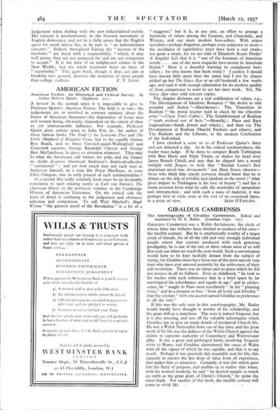GIRALDUS CAMBRENSIS
GIRALDUS CAMBRENSIS was a Welsh Archdeacon, the circle of whose fame has hitherto been limited to students of his own— the twelfth century. But he is emphatically worthy of a larger circle of friends, for of all the odd and very strongly individual people whom that century produced with such generous prodigality, he is one of the two or three whom most of us will first seek out when we reach the next world. Such a conversation would have to be kept tactfully distant from the subject of vanity, for Giraldus must have been one of the most naively vain men who have ever amused posterity by the artlessness of their self-revelation. There was no virtue and no grace which he did not possess in all its fullness. Even in childhood, " he took to his studies with such vehemence that in a brief space he far outstripped his schoolmates and equals in age," and in adoles- cence, he " taught in Paris most excellently " in his " pleasing voice," and in a manner so free " from all levity and frivolity " that the scholars " with one accord named Giraldus in preference to all the rest."
If this was -the only note in this autobiography, Mr. Butler would hardly have thought it worthy of his scholarship, and his great skill as a translator. The note is indeed frequent, but it is also amusing, and sets off the valuable information which Giraldus has to give on many details of mediaeval Church life. He was a Welsh Nationalist born out of due time, and the great work of his life was the defence of the Welsh Church against the claims to supreme authority of Canterbury and Westminster alike. It was a great and prolonged battle, involving frequent visits to Rome, and Giraldus championed the cause of Wales with all the vigour of which he was capable, and that is to say much. Perhaps it was precisely this insatiable zest for life, this capacity to extract the last drop of value from all experience, that makes him so attractive. Certainly, it was this which gave him his fixity of purpose, and enables us to realise that when, with his wonted modesty, he said " he desired naught so much on earth as the great glory of Christ's Church," he spoke the - - exact truth. For readers of this book, the twelfth century will conie-to- vivid life; -














































 Previous page
Previous page